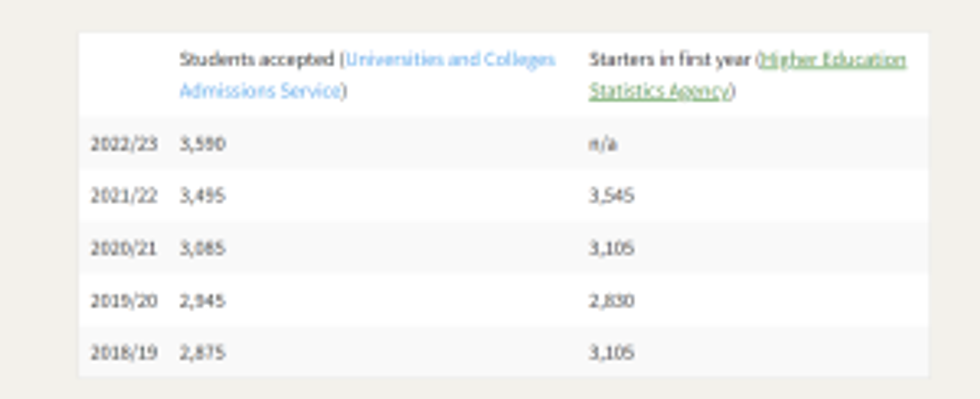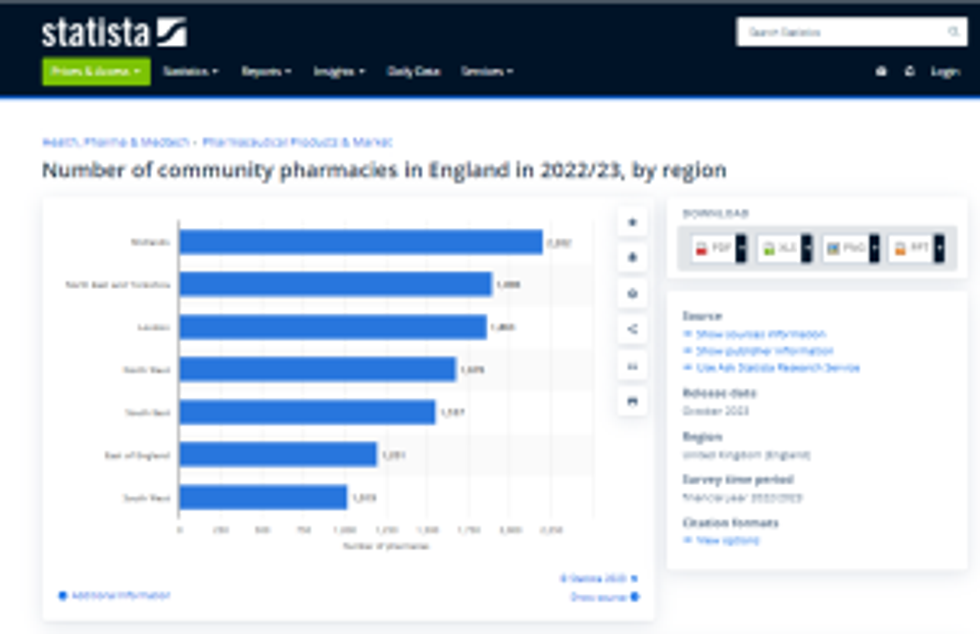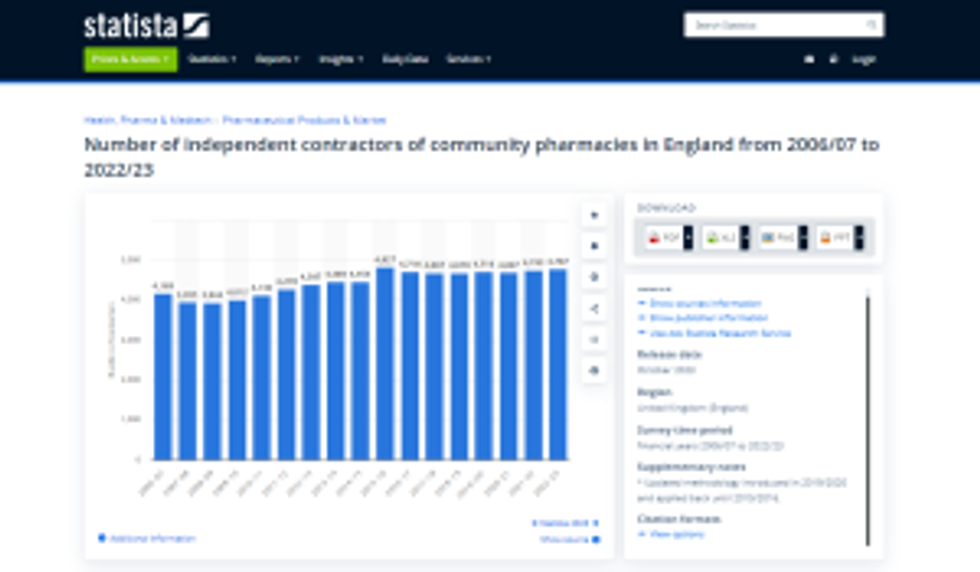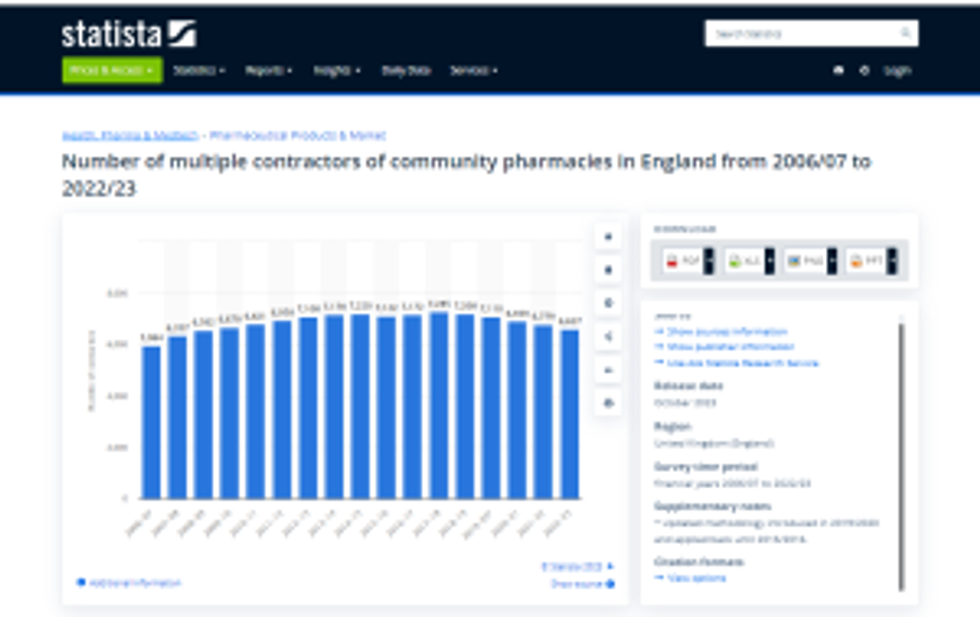The number of students accepted on Mpharm courses in England has also increased by more than 24 per cent in five years
The number of pharmacists working in community pharmacy in England has increased by 19 per cent in five years, according to new data released by the Department of Health and Social Care (DHSC).
As of 31 October 2022, there were 27,711 community pharmacists in the country, as compared to 23,284 in 2017, an increase of almost 4,500.
Pharmacy minister Andrea Leadsom revealed these figures yesterday (14 December) while responding to a written question from Karin Smyth, Shadow Minister of Health, in the parliament.
Smyth asked - how many and what proportion of community pharmacists have worked in England for each of the last 10 years.
Leadsom said: “The General Pharmaceutical Council (GPhC) has a duty to maintain a register of all pharmacists and pharmacy technicians registered to practice in Great Britain. The register does not contain data on what pharmacy sector registrants are employed in and numbers by country are according to their registered home address.
“This does not necessarily mean that registrants are working in those countries or that they are in employment.”
She presented a table that showed the number of pharmacists working in community pharmacy in England and its proportion of the GPhC register as of 31 October in each year for 2017, 2021 and 2022.
The data was collected during a survey conducted by NHS England and formerly Health Education England in those years, it only provides the headcount of pharmacists working in community pharmacy at the time of the survey and excludes trainees, the minister added.
The number of trainees accepted on Masters of Pharmacy courses in England has also increased by more than 24 per cent in five years, Leadsom revealed while responding to another question from Smyth.
In the 2022/23 academic year, 3,590 students were accepted on Mpharm courses, compared to 2,875 in 2018/19, as shown by data from the University and Colleges Admissions Service (UCAS).
Regarding the training places for pharmacists in England, the minister said the number is uncapped and determined each year by health education providers.
Significant drop in number of multiple contractors
As per Statista data, there were total 11,414 community pharmacies in England in the financial year 2022/23, with Midlands having the maximum number at 2,202.
London has the third highest number of community pharmacies (1,863) in England, after North East and Yorkshire (1,896).
In that financial year, there were 4,787 independent contractors (having five pharmacies or less) and 6,627 multiple contractors (having six pharmacies or more) of community pharmacies in England.
While there has been a slight increase in the number of independent contractors in the last five years, the number of multiple contractors has dropped significantly.
In the financial year 2018-19, there were 4,678 independent contractors and 7,208 multiple contractors of community pharmacies in England, as per Statista data.


















